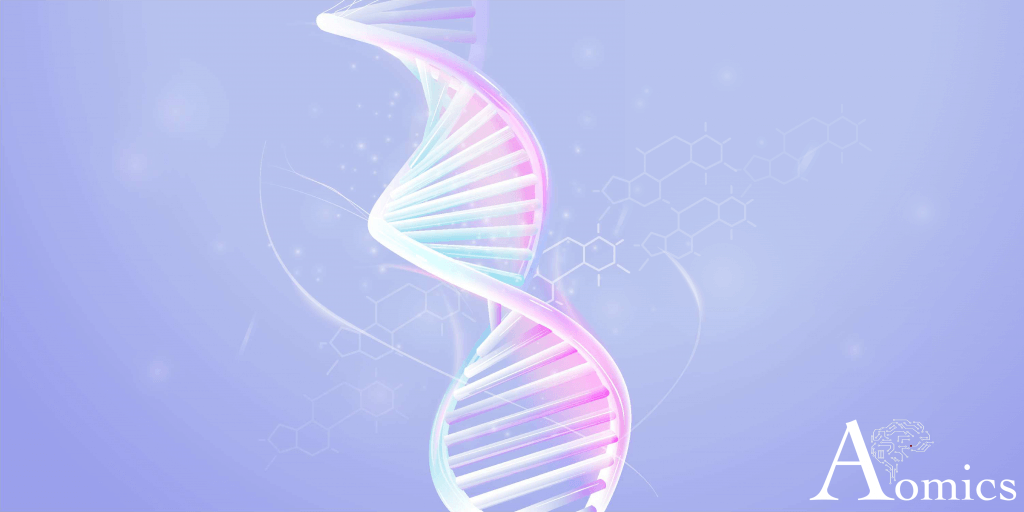
Pharmacogenomics
Pharmacogenomics also called pharmacogenetics studies how a person’s genes affect the way they respond to drugs and therapeutics. The main goal of pharmacogenomics is to help clinicians select the right drugs and dosage for treating individual patients based on their genetic variants or genotypes.
Pharmacogenomics is a part of the larger field of personalized and precision medicine. It evolved from genomics research and diagnostics which were based on genetic biomarkers. Pharmacogenomics has an important role to play in the development of drugs and therapeutics for a range of diseases like infectious diseases, chronic diseases, cancers and rare, genetic disorders.
Pharmacogenomics & Rare Diseases
The implications of pharmacogenomics for development of drugs and therapeutics for rare diseases are huge as 80% of all rare diseases are genetically based. Currently, the fact that most rare diseases are heterogeneous is a major challenge in developing effective and efficient treatments. Even within specific rare diseases, the presence of different genotypes implies that there is no “one-size fits all” drugs. For example, a disease like Niemann-Pick disease type C has nearly 200 missense mutations in the NPC1 gene. A phenotypically homogeneous disease may have a variety of genomic sub-types. Patients may have the same disease but with different genetic mutations which impact the efficacy of drugs. It is hard to predict who will benefit from a drug and who will experience adverse drug reactions. In such a context, genomics knowledge from the Human Genome Project, 1000 genome project and personalized whole genome sequencing data makes it easier to understand how different genetic variants respond to similar medications in terms of drug metabolism and efficacy. This knowledge of genetic differences can predict who will respond to a particular drug and who may not benefit from it or who will develop adverse side effects. When a particular gene variant is associated with drug response, there is a clear potential for making clinical decisions like dosage or opting for other drugs.

Pharmacogenomics & Multi-Omics
Pharmacogenomics can also help clinicians and researchers identify why certain individuals with a particular genetic variant have not responded to a drug. They identify genetic loci associated with known drug responses and compare it to individuals who have not responded to the same drug. Many methods are used for such studies including multi-gene analysis, whole-genome single nucleotide polymorphism profiles (SNPs) (Adams, 2008), whole exome sequencing and metabolomics. Recently developed so called next generation sequencing (NGS)-technologies generate whole genome/exome of 3.2 billion nucleotide human genome in a matter of weeks. Whole genome/exome sequencing (WGS/WES) can enable an accurate identification of all genetic variants associated with pharmacogenomic alleles (Posey, 2019). It is significant that genomic sequencing has been able to identify pharmacogenomic variants which impact drug metabolism. All these technologies have important implications for treatment of rare diseases with personalized, precision medicine.
Importantly, the pharma industry has showed interest in offering products with a diagnostic test to identify genetic variants. For example, the breast cancer drug Herceptin is offered with the HER2 identification test. Similarly, drugs for hepatitis B and C are often paired with RNA qualitative tests to identify the hepatitis genotype for precise treatment. Significantly, the identification of clinical biomarkers in phenotypically homogenous rare diseases has led to precise therapies for rare diseases. A good example being the FDA-approved cystic fibrosis therapy Trikafta (elexacaftor/ivacaftor/tezacaftor) to treat patients with the most common mutation (F508del mutation) in the cystic fibrosis transmembrane conductance regulator (CFTR) gene.
Pharmacogenomics in Drug Discovery and Development
It is clear that pharmacogenomics will play a big role in drug discovery and development of therapeutics for rare diseases. A report by Thomson Reuters in 2013 indicates that future growth in the orphan drug market will be fueled by personalized, precision medicine. Pharmacogenomics can increase the number of orphan drug subsets for specific rare diseases as treatment is guided by a better and deeper understanding of OMICS – genomics, proteomics, metabolomics. Pharmacogenomics can also help repurpose existing drugs and therapies for rare disease treatment. This can be an effective and efficient strategy. Take the example of the drug Nitisinone which was first licensed for Tyrosinaemia type 1 which is a disease that causes fatal liver tumors in young children. The same drug has also been approved by the European Medicines Agency (EMA) to treat the rare disease Alkaptonuria (AKU).
Pharmacogenomic research can play a role in drug safety for orphan drugs because it can research individual variation to drug responses which is encoded in the genome. Such research can prevent adverse drug reactions and boost safety of drugs. By enabling patient screening for likely positive drug responses or adverse drug reactions, pharmacogenomics can radically improve patient outcomes. This is especially important for rare diseases which have few approved drugs and therapies.
Pharmacogenomics and Biomarkers
The pharma industry has now embraced the fact that molecular and genetic diagnostic tests and therapies are necessary to progress towards treatment and cures for rare diseases which have concrete genetic origins. Currently, many global companies working on rare disease therapeutics are engaging with the application of pharmacogenomics and biomarkers for drug development. Pharmacogenomic testing is now used in phase 2A and 2B clinical trials to develop new molecules and avoid risks and costs due to adverse drug reactions. Companion diagnostics are now available for new drug candidates especially for cancers with rare mutations. In future, we can hope for such companion diagnostics for many more orphan drugs (like Trikafta). This will ensure that patients will get access to the best possible treatment with minimal adverse drug reactions.
Clearly, the future of rare disease therapeutics will be positively impacted by the evolving pharmacogenomic research and clinical practice.
References:
- Gibson, Shannon, and Barbara von Tigerstrom. “Orphan drug incentives in the pharmacogenomic context: policy responses in the US and Canada.” Journal of Law and the Biosciences 2, no. 2 (2015): 263-291. Accessed on 30 Dec. 21 from https://academic.oup.com/jlb/article/2/2/263/826087
- Maher, Paul D., and Marlene Haffner. “Orphan Drug Designation and Pharmacogenomics.” BioDrugs 20, no. 2 (2006): 71-79. Accessed on 30 Dec. 21 from https://pubmed.ncbi.nlm.nih.gov/16626164/
- Posey, Jennifer E. “Genome sequencing and implications for rare disorders.” Orphanet journal of rare diseases 14, no. 1 (2019): 1-10. Accessed on 30 Dec. 21 from https://ojrd.biomedcentral.com/articles/10.1186/s13023-019-1127-0
- Ventola, C. Lee. “Pharmacogenomics in clinical practice: reality and expectations.” Pharmacy and Therapeutics 36, no. 7 (2011): 412. Accessed on 30 Dec. 21 from https://www.ncbi.nlm.nih.gov/pmc/articles/PMC3171815/
- Sun, Wei, Wei Zheng, and Anton Simeonov. “Drug discovery and development for rare genetic disorders.” American Journal of Medical Genetics Part A 173, no. 9 (2017): 2307-2322. Accessed on 30 Dec. 21 from https://www.ncbi.nlm.nih.gov/pmc/articles/PMC5662129/
- Adams, Jill U. “Pharmacogenomics and personalized medicine.” Nature Education 1, no. 1 (2008): 194. Accessed on 30 Dec. 21 from https://www.nature.com/scitable/topicpage/pharmacogenomics-and-personalized-medicine-643/
- https://www.nigms.nih.gov/education/fact-sheets/Pages/pharmacogenomics.aspx
- https://medlineplus.gov/genetics/understanding/genomicresearch/pharmacogenomics/
- https://akusociety.org/repurposing-old-drugs-for-new-diseases/
- https://www.fda.gov/news-events/press-announcements/fda-approves-new-breakthrough-therapy-cystic-fibrosis


